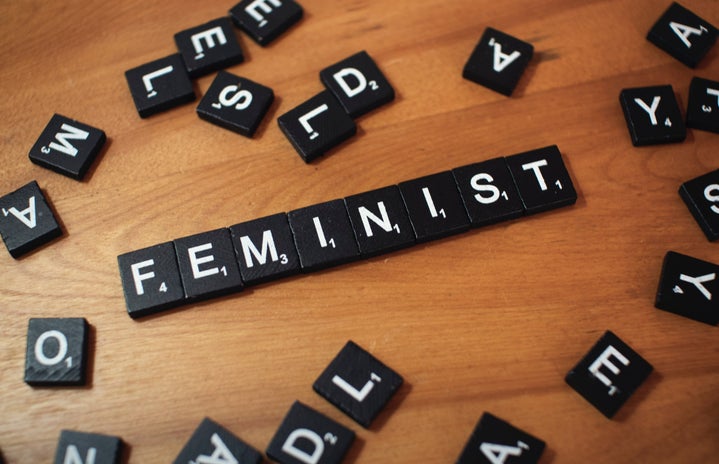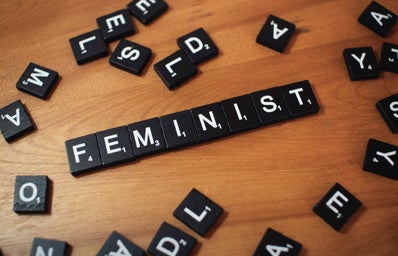The writer Margaret Atwood, author of The Handmaid’s Tale, once said the biggest fear women have is to be killed by men. The worst fear men have about women? To be laughed at. Plum had them both.
The protagonist of the series Dietland, interpreted by Joy Nash, is a very complex woman. Her name is Alicia Kettle, but everyone calls her Plum — like the fruit. She is a fat middle class New Yorker that works as a ghostwriter at the beauty magazine Daisy Chain. Her job is to reply to letters sent to Kitty Montgomery, her ginger narcissist boss that is super fancy and thin.
The series, based on Sarai Walker’s best-seller, wasn’t renewed for its second season, but the first one brings out several issues that are also developed by Naomi Wolf’s Beauty Myth. Wolf’s book was published in 1991, yet its pages remain accurate, describing how beauty images are used against women.
Know how the theory of The Beauty Myth is used on Dietland.
- The beauty magazines’ sexism
-
In the series, Plum receives letters from “Kitty’s girls”, the readers of the magazine, asking for help when it comes to diet, makeup, being skinny and getting a boyfriend. Her replies always go along with her boss’s speech, until she freaks out and realizes how much she disagrees with all of that.
Naomi Wolf also discusses the sexism inside the beauty magazines when she gives examples of how they use advertising to objectify and to create a feeling of guilt in women that don’t correspond to the standard expressed on the images.
Besides, she describes the Myth as a third journey for women. They already had a journey inside their homes, taking care of their children and the house. Then, after fighting for their rights to study and work — the second journey — and gaining them, the system couldn’t let women prosper that much and compete with men. Therefore, it created the beauty journey, expecting women would not have time to fight for their rights after cleaning the house, working outside and struggling for a cover magazine face and body.
- The Beauty Myth and the surgeries
-
Apart from working in the magazine, Plum makes money selling sweets in her friend’s cafe — it’s ironic how she makes incredible cakes, but can’t eat them (as in the opening of the series). Her goal is to make enough money to have a stomach reduction surgery so she can “be normal”. She’s fed up with people who tell her how beautiful her face is before giving her advice about what to do with her weight. “I just want to be able to sit on an airplane and don’t have to excuse myself for the person who is seated beside me”.
According to Naomi Wolf, eating disorders and aesthetic surgeries have grown among women while they have gained more power. “A culture focused on feminine thinness doesn’t reveal an obsession with feminine beauty. It’s an obsession with feminine obedience. Making diets is the most powerful political sedative in women history. An insane passive population can be controlled”, said Naomi.
The Myth also points out that women who have those surgeries may think they are doing this for themselves, but they are actually doing it to fit in a system that excludes and slaughters them. Naomi says they don’t necessarily want to have bigger boobs or be thinner for a specific guy, in fact they are oppressed by the patriarchal atmosphere that doesn’t allow them to feel at ease in their own bodies.
- No woman is safe
-
Despite the fact that Plum, a 300-pound woman, is the leading actress of Dietland, she is not the only one who is oppressed by the Beauty Myth. Even though her boss, the director of the magazine, is within the beauty standard, she also feels its effects and gets stuck by it. “We can´t age or we become invisible. But men, nobody cares what they look like, as long as they have money”, states Kitty.
The Myth dialogues with that scene: “Researches reveal that among of most of the women who work, have success, are attractive and controlled in the western world, there is a secret life that poisons our freedom: immersed in beauty concepts, it is a dark piece of hate of ourselves, obsessions with the physical, panic of growing old and dread of losing control. It’s not by chance that so many potentially powerful women feel that way”, such as Kitty.
- Men over woman
-
It’s evident that the boss has power over men, but she’s neither married nor dating. Plum doesn’t have experience with men, until she starts going to the Calliope House, a healing space for damaged and abused women.
The leader of it, Verena Baptist, welcomes women in her house and treats them with conversations and “missions”, like waxing, for them to see what it takes to fit in the Beauty Myth — and what it takes from you. “I don’t hate myself, the world hates me”, says the protagonist.
In one of those missions, Plum had to go on a couple of blind dates. She got stood up, was tricked, rejected and experienced uncomfortable situations — to say the least — with fatophobic men. After that, she gave a second chance to one of the guys, who ended up raping her.
- Revenge and cuttings
-
Dietland is not only about Plum. A crime background surrounds the story when a terrorist group named Jennifer starts killing men who abused women. The crew is wanted by the police and changes the atmosphere of the country: women feel safe to run at night because of Jennifer, while men are scared to walk on the streets.
The Beauty Myth doesn’t say anything about violence, but the issues raised by the book for sure upset and enrage women.
It’s important to highlight that both the book and the series have to be consumed taking into account its cuttings of gender, race and social class. They focus on white women — especially the book, which brings out subjects that are not the most important fights of black and poor people.
Still, the issues addressed are very important and have to be questioned day by day. Reading The Beauty Myth and watching Dietland will certainly change your standpoints when it comes to seeing yourself and other women around you. “What if it’s not you that needs to change; what if it’s everybody else?”
——————————————————————
The article above was edited by Gabriela Girardi.
Liked this type of content? Check Her Campus Cásper Líbero home page for more!


